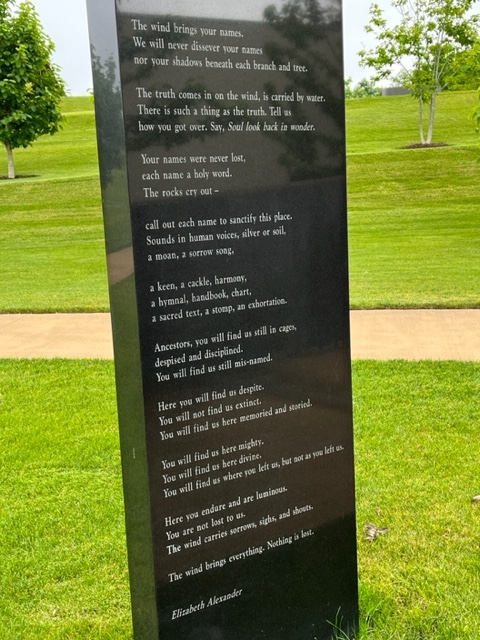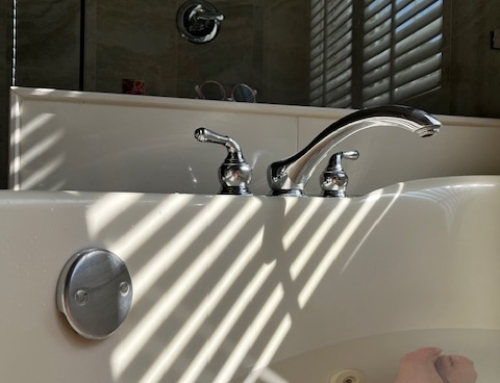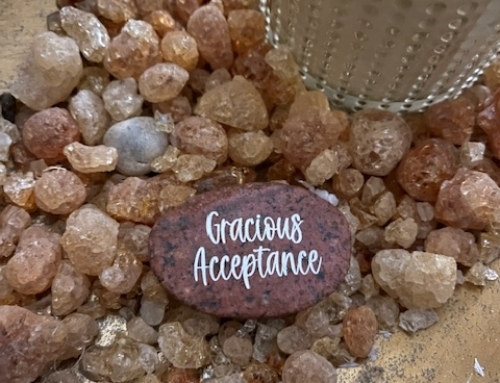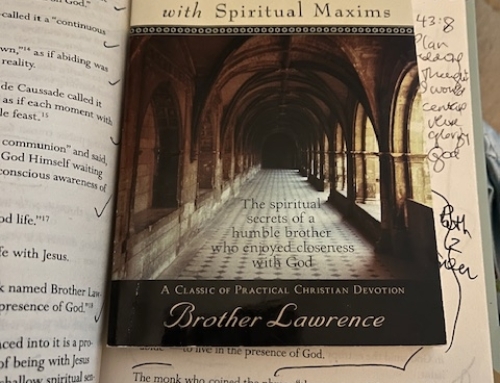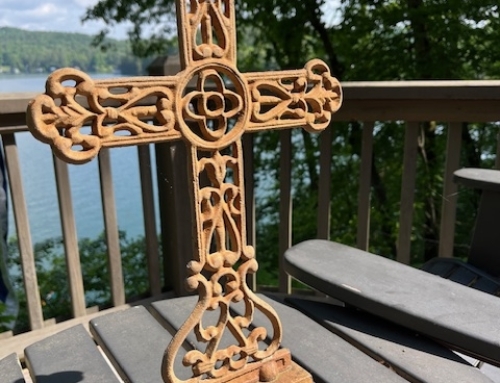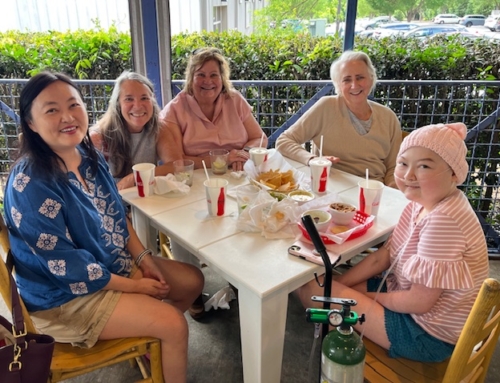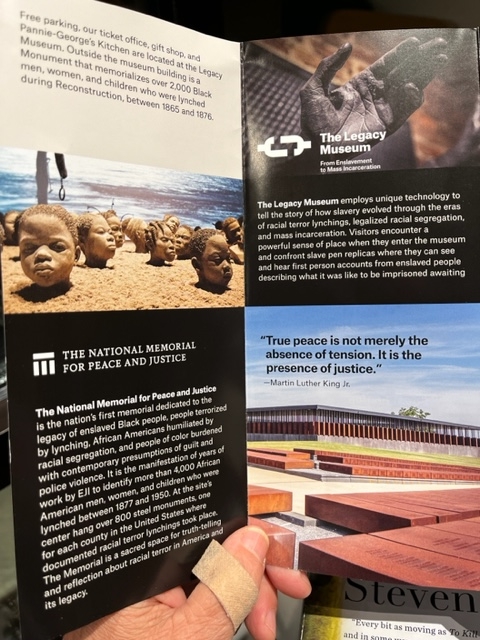
Good morning…
With our internet still out, I come to Starbucks to get service for the third day in a row. I pull out the brochure from our trip to Montgomery, Alabama and snap the photo above. I am struck by the fact that among all the informative words and haunting images, I am holding the pamphlet with a loose bandaid on my left thumb. It harkens me back to a lasting line from our Monday post: “But now I fall on the sidewalks of life, I skin my knees. I bleed.”
These are three things we all have in common. We all fall. We skin our knees. We bleed. No one is immune to falling, skinning, bleeding. None of us is better and no one is worse at these natural human responses. As life happens to us on these hardened earthly sidewalks, we fall. We skin. We bleed. All of us.
It is painful to realize that our ancestors randomly chose the color of our skin as a dividing line. Creating a totally make-believe farce, the inhumane actions of the people in power assumed that white skin meant privilege and superiority. Kidnapping. Enslaving. Lynching. Segregating. Incarcerating. Our black skinned brothers and sisters for generations have been treated like expendable, tradable property rather than being seen as deeply loved people who fall, skin, and bleed.
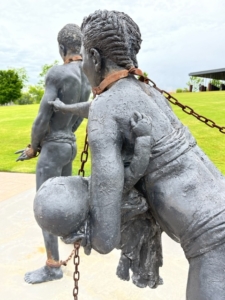
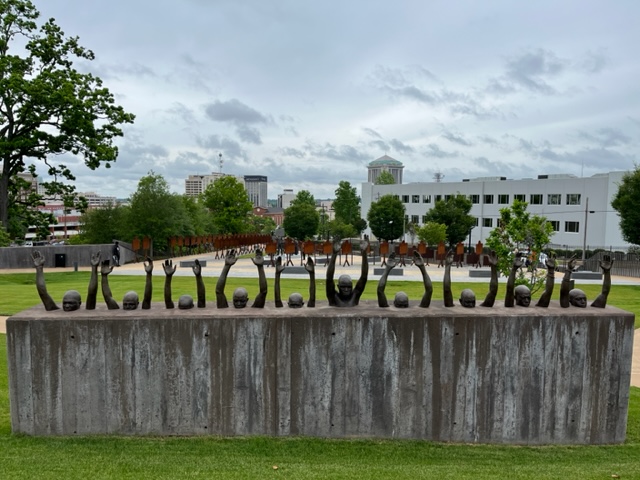
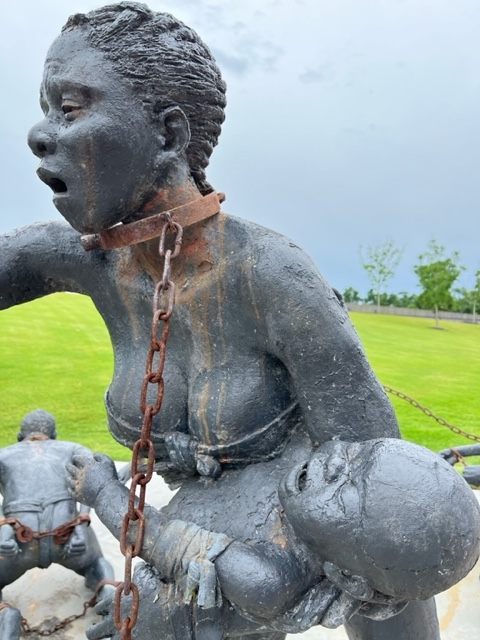
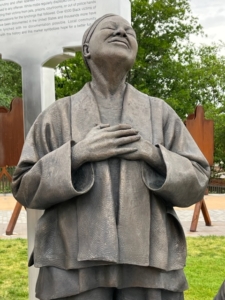
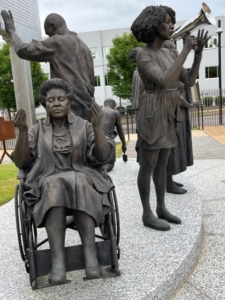
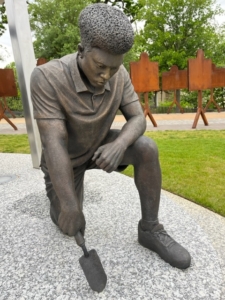
I am drawn back to page 17 in our discussion book from this semester, Just Mercy by Bryan Stevenson. “My work with the poor and the incarcerated has persuaded me that the opposite of poverty is not wealth; the opposite of poverty is justice,” explains Stevenson. “Finally, I’ve come to believe that the true measure of our commitment to justice, the character of our society, our commitment to rule of law, fairness, and equality cannot be measured by how we treat the rich, the powerful, the privileged, and the respected among us. The true measure of our character is how we treat the poor, the disfavored, the accused, the incarcerated, and the condemned. We all are implicated when we allow other people to be mistreated. An absence of compassion can corrupt the decency of a community, a state, a nation. Fear and anger can make us vindictive and abusive, unjust and unfair, until we suffer from the absence of mercy and we condemn ourselves as much as we victimize others.”
So what are we to do with this pile of unresolved pain?
Have the same attitude that Christ Jesus had. Although he was in the form of God and equal with God, he did not take advantage of this equality. Instead, he emptied himself by taking on the form of a servant, by becoming like other humans, by having a human appearance. He humbled himself by becoming obedient to the point of death, death on a cross (Philippians 2:5-8, GW).
Likely wrapped in dark skin, Jesus fell humbled on the sidewalks of earth, skinned his knees, and bled just like you and me, just like all of the children of God who are memorialized in Montgomery, Alabama.
…Sue…
